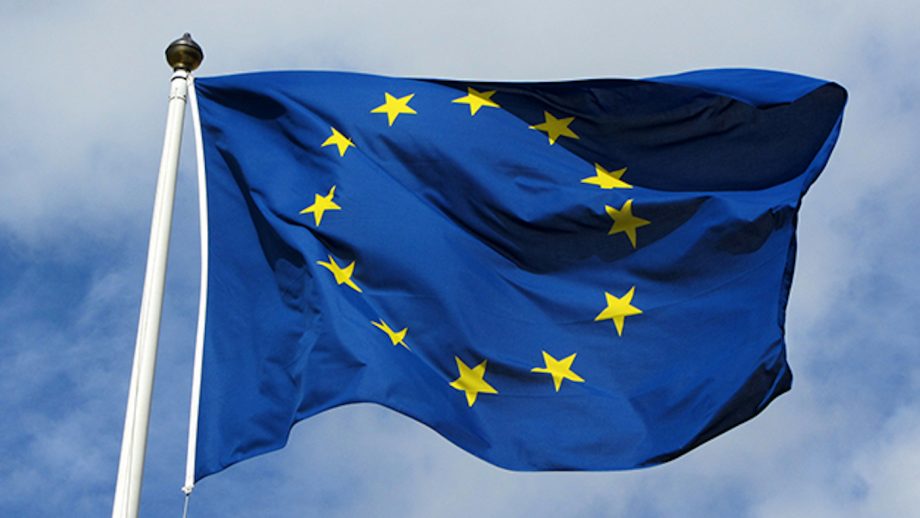Those going through the process have told H&H of the complicated nature of the requirements, and urged others not to leave it too late. H&H finds out what the deadline means for the equestrian industry
THE next major Brexit deadline that will affect all corners of the equestrian industry is rapidly approaching.
The deadline for EU nationals who were living in the UK before 31 December 2020 to apply for settled or pre-settled status is 30 June – and those working in the equestrian world are urged not to leave it to the last minute.
{"content":"PHA+RnJlZWxhbmNlIGVxdWVzdHJpYW4gam91cm5hbGlzdCBUaWxseSBCZXJlbmR0LCB3aG8gaGFzIGEgR2VybWFuIHBhc3Nwb3J0IGFuZCBoYXMgbGVnYWxseSBsaXZlZCBpbiB0aGUgVUsgZm9yIOKAnDIwIG9mIGhlciAzMCB5ZWFyc+KAnSB0b2xkIDxlbT5IJmFtcDtIPC9lbT4gdGhlIGJ1cmVhdWNyYWN5IGFuZCBsZXZlbCBvZiBwcm9vZiByZXF1aXJlZCB0b29rIGhlciDigJxieSBzdXJwcmlzZeKAnS48L3A+CjxwPuKAnEkgdGhpbmsgb2YgbXlzZWxmIGFzIGJlaW5nIHF1aXRlIGxpdGVyYXRlIHdoZW4gaXQgY29tZXMgdG8gR292ZXJubWVudCBmb3JtcyBhbmQgbGVnaXNsYXRpb24g4oCTIEkgZmVlbCB2ZXJ5IEVuZ2xpc2gsIGJ1dCB0aGUgcHJvY2VzcyBpcyBhIGxlbmd0aHkgYW5kIG5vdCBhIHdob2xseSBzdHJhaWdodGZvcndhcmQgb25lLOKAnSBzaGUgc2FpZCwgYWRkaW5nIHRoYXQgc2hlIGZlbHQgYSB3ZWlnaHQgb2Yg4oCcY29uZnVzaW9uIGFuZCBhIGJpdCBvZiBmZWFyIHRoYXQgSSB3YXMgYWJvdXQgdG8gYmUgc2VudCBvdXQgb2YgdGhlIGNvdW50cnkgSeKAmXZlIG1hZGUgbXkgbGlmZSBhbmQgbXkgY2FyZWVyIGlu4oCdLjwvcD4KPHA+U2hlIGhhcyBiZWVuIHJlcXVpcmVkIGJ5IHRoZSBIb21lIE9mZmljZSB0byBwcm92aWRlIHByb29mIGluIHRoZSBmb3JtIG9mIHNwZWNpZmljIGRvY3VtZW50cyAoc3VjaCBhcyBiYW5rIHN0YXRlbWVudHMpIHRoYXQgc2hlIHdhcyBsZWdhbGx5IGxpdmluZyBpbiB0aGUgVUsgb24gY2VydGFpbiBkYXRlcyDigJMgc29tZSBvZiB3aGljaCB3ZXJlIHllYXJzIGFnbyDigJMgdG8gZmlsbCBpbiBhbnkgZ2FwcyBpbiB0aGVpciByZWNvcmRzLjwvcD4KPHA+PGRpdiBjbGFzcz0iYWQtY29udGFpbmVyIGFkLWNvbnRhaW5lci0tbW9iaWxlIj48ZGl2IGlkPSJwb3N0LWlubGluZS0yIiBjbGFzcz0iaXBjLWFkdmVydCI+PC9kaXY+PC9kaXY+PHNlY3Rpb24gaWQ9ImVtYmVkX2NvZGUtMzEiIGNsYXNzPSJoaWRkZW4tbWQgaGlkZGVuLWxnIHMtY29udGFpbmVyIHN0aWNreS1hbmNob3IgaGlkZS13aWRnZXQtdGl0bGUgd2lkZ2V0X2VtYmVkX2NvZGUgcHJlbWl1bV9pbmxpbmVfMiI+PHNlY3Rpb24gY2xhc3M9InMtY29udGFpbmVyIGxpc3RpbmctLXNpbmdsZSBsaXN0aW5nLS1zaW5nbGUtc2hhcmV0aHJvdWdoIGltYWdlLWFzcGVjdC1sYW5kc2NhcGUgZGVmYXVsdCBzaGFyZXRocm91Z2gtYWQgc2hhcmV0aHJvdWdoLWFkLWhpZGRlbiI+DQogIDxkaXYgY2xhc3M9InMtY29udGFpbmVyX19pbm5lciI+DQogICAgPHVsPg0KICAgICAgPGxpIGlkPSJuYXRpdmUtY29udGVudC1tb2JpbGUiIGNsYXNzPSJsaXN0aW5nLWl0ZW0iPg0KICAgICAgPC9saT4NCiAgICA8L3VsPg0KICA8L2Rpdj4NCjwvc2VjdGlvbj48L3NlY3Rpb24+PC9wPgo8cD5TaGUgc2FpZCB0aGUgcHJvY2VzcyB2YXJpZXMgZGVwZW5kaW5nIG9uIGEgcGVyc29u4oCZcyBpbmRpdmlkdWFsIGNpcmN1bXN0YW5jZXMsIGJ1dCB1cmdlZCBhbnlvbmUgd2hvIGhhcyBub3QgeWV0IHN0YXJ0ZWQgdG8gbWFrZSBpdCBhIHByaW9yaXR5LjwvcD4KPHA+4oCcV2XigJl2ZSBnb3QganVzdCBvdmVyIGEgbW9udGggbm93LCBpdCBjYW4gYmUgZG9uZSBpbiB0aGF0IHRpbWUsIGFuZCBJIHdvdWxkIGhhdGUgZm9yIGFueW9uZSB0byB0aGluayBpdCBpcyBhIGJpdCBvZiBvcmRpbmFyeSBwYXBlcndvcmsgdGhleSBjYW4gc2l0IGRvd24gYW5kIGRvIGluIGFuIGhvdXIs4oCdIHNoZSBzYWlkLjwvcD4KPHA+VGhlcmUgYXJlIGNvbmNlcm5zIGFib3V0IHdoYXQgdGhpcyBjb3VsZCBtZWFuIGZvciBpbmRpdmlkdWFscyBpbiBwYXJ0cyBvZiBhbiBpbmR1c3RyeSB0aGF0IGhpc3RvcmljYWxseSBkb2VzIG5vdCBoYXZlIHRoZSBiZXN0IHJlY29yZCBvZiBjb21wbGlhbmNlLjwvcD4KPGRpdiBjbGFzcz0iYWQtY29udGFpbmVyIGFkLWNvbnRhaW5lci0tbW9iaWxlIj48ZGl2IGlkPSJwb3N0LWlubGluZS0zIiBjbGFzcz0iaXBjLWFkdmVydCI+PC9kaXY+PC9kaXY+CjxwPkVVIGNpdGl6ZW5zIGdyYW50ZWQgc2V0dGxlZCBvciBwcmUtc2V0dGxlZCBzdGF0dXMgaGF2ZSB0aGUgcmlnaHQgdG8gY29udGludWUgbGl2aW5nIGFuZCB3b3JraW5nIGluIHRoZSBVSy4gQnV0IHRoZSBydWxlcyByZWdhcmRpbmcgRVUgbmF0aW9uYWxzIHdpc2hpbmcgdG8gbm93IHRyYXZlbCB0byB3b3JrIGluIHRoZSBVSyDigJMgYW5kIHZpc2EgdmVyc2Eg4oCTIGNoYW5nZWQgZnJvbSAxIEphbnVhcnkuIEl0IGlzIG5vdCBpbXBvc3NpYmxlLCBidXQgdGhlcmUgYXJlIG5ldyBob29wcyB0byBqdW1wIHRocm91Z2guPC9wPgo8cD48YSBocmVmPSJodHRwczovL3d3dy5ob3JzZWFuZGhvdW5kLmNvLnVrL3RhZy9ncm9vbXMiPkdyb29tcyw8L2E+IDxhIGhyZWY9Imh0dHBzOi8vd3d3LmhvcnNlYW5kaG91bmQuY28udWsvdGFnL2ZhcnJpZXJzIj5mYXJyaWVyczwvYT4gYW5kIHZldGVyaW5hcnkgbnVyc2VzIGFyZSBhbW9uZyB0aGUgam9icyBpbmNsdWRlZCBvbiB0aGUgc2tpbGxlZCB3b3JrZXIgdmlzYSBsaXN0LCB3aGljaCBpcyBwb3NpdGl2ZSwgYnV0IHRoaXMgaXMgb25seSBwYXJ0IG9mIHRoZSBwcm9jZXNzLiBUaGUgZW1wbG95ZXIgbXVzdCBiZSBIb21lIE9mZmljZS1hcHByb3ZlZCBhbmQgdGhlIG1pbmltdW0gYWNjZXB0YWJsZSB3YWdlIGlzIHRoZSBoaWdoZXN0IG9mIHRoZSB0aHJlZSBvcHRpb25zOiDCozI1LDYwMC95ZWFyLCDCozEwLjEwL2hvdXIgb3IgdGhlIOKAnGdvaW5nIHJhdGXigJ0gZm9yIHRoZSB0eXBlIG9mIHdvcmsuPC9wPgo8ZGl2IGNsYXNzPSJhZC1jb250YWluZXIgYWQtY29udGFpbmVyLS1tb2JpbGUiPjxkaXYgaWQ9InBvc3QtaW5saW5lLTQiIGNsYXNzPSJpcGMtYWR2ZXJ0Ij48L2Rpdj48L2Rpdj4KPHA+VGhlIFVLIGlzIGFsc28gYSBtYWpvciBlbXBsb3llciBvZiBFdXJvcGVhbiB2ZXRzLCB3aG9zZSBqb2IgaXMgbGlzdGVkIG9uIHRoZSBzaG9ydGFnZSBvY2N1cGF0aW9uIGxpc3QsIG1lYW5pbmcgdGhlIG1pbmltdW0gaW5jb21lIGlzIHNldCBhdCA4MCUgb2YgdGhlIGdvaW5nIHJhdGUgKMKjMjYsMDAwL3llYXIsIMKjMTIuODIvaG91cikuPC9wPgo8cD5BIDIwMTcgcmVwb3J0IGJ5IHRoZSBJbnN0aXR1dGUgZm9yIEVtcGxveW1lbnQgU3R1ZGllcyBmb3IgdGhlIFJveWFsIENvbGxlZ2Ugb2YgVmV0ZXJpbmFyeSBTdXJnZW9ucyAoUkNWUykgc3RhdGVkIHRoZXJlIHdlcmUgYXJvdW5kIDYsNDMwIEV1cm9wZWFuIGdyYWR1YXRlcyByZWdpc3RlcmVkIHRvIHdvcmsgaW4gdGhlIFVLIGF0IHRoZSB0aW1lLCB3aXRoIHNvbWUgNSwwMDAgYWxyZWFkeSBwcmFjdGlzaW5nLjwvcD4KPGRpdiBjbGFzcz0iYWQtY29udGFpbmVyIGFkLWNvbnRhaW5lci0tbW9iaWxlIj48ZGl2IGlkPSJwb3N0LWlubGluZS01IiBjbGFzcz0iaXBjLWFkdmVydCI+PC9kaXY+PC9kaXY+CjxwPkFsdGhvdWdoIHRoZSB3YXkgQnJleGl0IOKAkyBhbmQgdGhlIHBhbmRlbWljIOKAkyBoYXMgYWZmZWN0ZWQgbWlncmF0aW9uIG9mIHZldHMgdG8gdGhlIFVLIHJlbWFpbnMgdG8gYmUgc2VlbiwgdGhlIFJDVlMgYW5kIGluZHVzdHJ5IGFyZSBrZWVwaW5nIHdhdGNoIG9uIHRoZSBzaXR1YXRpb24uPC9wPgo8cD48YSBocmVmPSJodHRwczovL3d3dy5ob3JzZWFuZGhvdW5kLmNvLnVrL3RhZy9icml0aXNoLWdyb29tcy1hc3NvY2lhdGlvbiI+QnJpdGlzaCBHcm9vbXMgQXNzb2NpYXRpb248L2E+IGRpcmVjdG9yIEx1Y3kgS2F0YW4gdG9sZCA8ZW0+SCZhbXA7SDwvZW0+IHRoZSBzdWJqZWN0IGFnYWluIGhpZ2hsaWdodHMgdGhlIGltcG9ydGFuY2Ugb2YgVUsgZXF1ZXN0cmlhbiBidXNpbmVzc2VzIGNvbXBseWluZyB3aXRoIGVtcGxveW1lbnQgbGF3LCDigJx3aGljaCBpcyBub3QgYSBjaG9pY2XigJ0uPC9wPgo8ZGl2IGNsYXNzPSJpbmplY3Rpb24iPjwvZGl2Pgo8cD5TaGUgYWxzbyB1cmdlZCBhbnlvbmUgd2hvIGhhcyBub3QgeWV0IGFwcGxpZWQgZm9yIHNldHRsZWQgb3IgcHJlLXNldHRsZWQgc3RhdHVzIHRvIGRvIHNvLCBhbmQgbG9va2luZyBhaGVhZCB0byByZWNydWl0aW5nIGluIGEgcG9zdC1CcmV4aXQgd29ybGQsIGNhbGxlZCBvbiBlbXBsb3llcnMgdG8gdGFrZSB0aGUgb3Bwb3J0dW5pdHkgdG8gbWFrZSB0aGVpciB3b3JrcGxhY2VzIGF0dHJhY3RpdmUgcGxhY2VzIHRvIHdvcmsuPC9wPgo8cD7igJxPZmZlciBhIGdvb2QgZW1wbG95bWVudCBzaXR1YXRpb24gdGhhdCBpcyBsZWdhbCwgZmFpciBhbmQgYWRoZXJlcyB0byBnb29kIGVtcGxveW1lbnQgcHJhY3RpY2VzIGFuZCB0aGVuIHlvdSB3aWxsIGF0dHJhY3QgYW5kIHJldGFpbiB0aGUgYmVzdCB3b3JrZm9yY2Us4oCdIHNoZSBhZGRlZC48L3A+CjxwPlRvIGFwcGx5IGZvciBzZXR0bGVkIHN0YXR1cywgdmlzaXQgdGhlIEdvdmVybm1lbnQgd2Vic2l0ZS4gSW5kZXBlbmRlbnQgc3VwcG9ydCBhbmQgaW5mb3JtYXRpb24gY2FuIGJlIGZvdW5kIGF0IDxhIGhyZWY9Imh0dHA6Ly9zZXR0bGVkLm9yZy51ayIgdGFyZ2V0PSJfYmxhbmsiIHJlbD0ibm9vcGVuZXIgbm9yZWZlcnJlciI+U2V0dGxlZC48L2E+PC9wPgo8cD4K"}
You might also be interested in…
Stay in touch with all the news in the run-up to and throughout the major shows and events during 2026 and beyond with a Horse & Hound subscription. Subscribe today for all you need to know ahead of these major events, plus online reports on the action as it happens from our expert team of reporters and in-depth analysis in our special commemorative magazines. Have a subscription already? Set up your unlimited website access now
H&H senior news writer
Lucy is an experienced news journalist, reporter and presenter. Since joining the Horse & Hound team in 2015, Lucy has reported from major global sporting events including the Tokyo Paralympic Games and multiple European Championships, as well as Badminton, Burghley and London, to name a few. She has covered current affairs and sports news across the full spectrum of equestrian disciplines and racing, as well as human and equine welfare, industry news and court cases.






